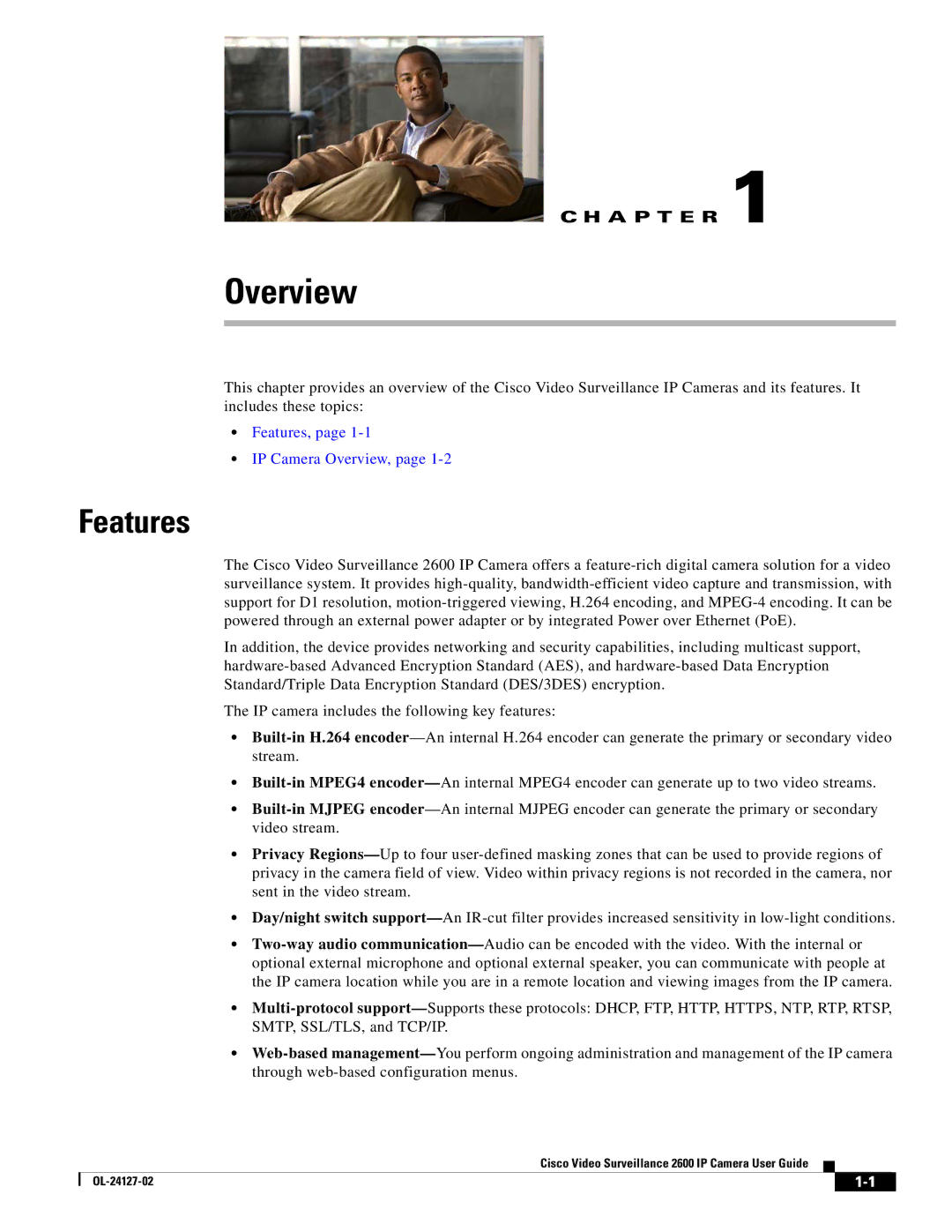C H A P T E R 1
Overview
This chapter provides an overview of the Cisco Video Surveillance IP Cameras and its features. It includes these topics:
Features
The Cisco Video Surveillance 2600 IP Camera offers a feature-rich digital camera solution for a video surveillance system. It provides high-quality, bandwidth-efficient video capture and transmission, with support for D1 resolution, motion-triggered viewing, H.264 encoding, and MPEG-4 encoding. It can be powered through an external power adapter or by integrated Power over Ethernet (PoE).
In addition, the device provides networking and security capabilities, including multicast support, hardware-based Advanced Encryption Standard (AES), and hardware-based Data Encryption Standard/Triple Data Encryption Standard (DES/3DES) encryption.
The IP camera includes the following key features:
•Built-in H.264 encoder—An internal H.264 encoder can generate the primary or secondary video stream.
•Built-in MPEG4 encoder—An internal MPEG4 encoder can generate up to two video streams.
•Built-in MJPEG encoder—An internal MJPEG encoder can generate the primary or secondary video stream.
•Privacy Regions—Up to four user-defined masking zones that can be used to provide regions of privacy in the camera field of view. Video within privacy regions is not recorded in the camera, nor sent in the video stream.
•Day/night switch support—An IR-cut filter provides increased sensitivity in low-light conditions.
•Two-way audio communication—Audio can be encoded with the video. With the internal or optional external microphone and optional external speaker, you can communicate with people at the IP camera location while you are in a remote location and viewing images from the IP camera.
•Multi-protocolsupport—Supports these protocols: DHCP, FTP, HTTP, HTTPS, NTP, RTP, RTSP, SMTP, SSL/TLS, and TCP/IP.
•Web-basedmanagement—You perform ongoing administration and management of the IP camera through web-based configuration menus.
Cisco Video Surveillance 2600 IP Camera User Guide

